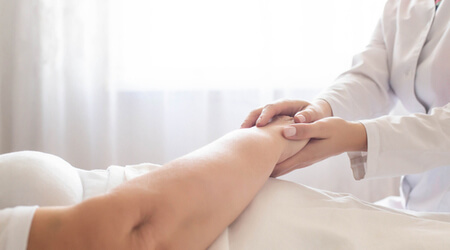
Bedsores are painful and potentially deadly injuries that are far too common among nursing home residents in South Carolina. Bedsores – which are also called pressure sores, pressure ulcers or decubitus ulcers – are caused by lying in one position for a lengthy amount of time. The pressure of the patient’s weight reduces the blood supply to the skin and underlying tissue, and this can cause a sore that can become an open wound.
Nursing home residents who are bedridden or continuously in wheelchairs are susceptible to bedsores if the care they are provided does not include frequently turning them or helping them to reposition themselves. Open pressure sores, which are painful, can easily lead to infection, including sepsis, a life-threatening infection caused by bacteria entering the bloodstream through broken skin.
A nursing home patient who has developed a severe bedsore is likely a victim of neglect. He or she needs immediate medical assistance and the help of an experienced nursing home neglect lawyer.
In South Carolina, Joye Law Firm can help abused or neglected nursing home residents obtain compensation for the medical care they need and for their pain and suffering.
Call Joye Law Firm now or fill out our online contact form for a free and confidential review of your nursing home claim.
Bedsores: A Serious Problem for Nursing Home Residents
At Stage 1, a bedsore is a darkened patch of skin that may be tender and painful if touched. But left untreated it becomes an ulcer, a bleeding injury.
At Stage 2, the outer and secondary layers of skin have worn away to leave what looks like a fluid-filled or ruptured blister.
At Stage 3, a pressure ulcer has become a hole in the skin, usually exposing some fat and with yellowish dead tissue at its bottom. There may be additional, deeper damage beyond the primary injury.
A Stage 4 bedsore may expose muscle, bone or tendons as the dead tissue wears away. Damage typically extends below the healthy skin that surrounds the pressure ulcer.
Bedsores are more likely to occur where there is less body fat or muscle between skin and bone, such as at the spine, tailbone, shoulder blades, hips, heels and elbows.
In addition to the great pain of a bedsore, an affected patient is at risk for infection, including:
- Sepsis, which occurs when bacteria enter the bloodstream and spread throughout the body. Sepsis can cause organ failure and death.
- Cellulitis, an infection of the skin and connective tissue. Cellulitis, like any infection, can be life-threatening.
- Bone and joint infections, which can cause loss of function as well as life-threatening complications if the infection spreads further.
Squamous cell carcinoma, a form of cancer, is also a possible complication of chronic, non-healing wounds such as bedsores. It is an aggressive cancer that is usually treated with surgery.
Legal Claims Over Bedsore Injuries in South Carolina Nursing Homes
Serious bedsore problems simply should not happen, particularly in nursing homes, which are supposed to care for people who cannot take care of themselves.
At Stage 1 and 2, a bedsore may be treated effectively by cleaning and dressing the wound, and relieving pressure on the affected area.
Stage 3 and 4 bedsores that occur after a patient is admitted to a care facility are among several “never events” identified by the National Quality Forum (NQF), a nonprofit organization working to improve the quality of American healthcare. Never events are preventable medical problems that could result in death or significant disability.
A nursing home resident who has developed a Stage 3 or 4 pressure sore (or family members on the resident’s behalf) may be able to pursue a legal claim against the nursing home and its staff for neglect. Such a claim would seek compensation for the cost of restorative medical care, as well as for the resident’s pain and suffering.
A legal claim may also prompt a neglectful long-term care facility to establish proper care protocols and ensure that staff follows them.
The federal Centers for Medicare & Medicaid Services, in regulations known as “F-tags,” requires that nursing homes ensure that:
- A resident who enters the facility without pressure sores does not develop pressure sores unless the individual’s clinical condition demonstrates that they were unavoidable.
- A resident having pressure sores receives necessary treatment and services to promote healing, prevent infection and prevent new sores from developing.
Nursing homes should have established polices for turning or repositioning patients who need this assistance, and for bedsore prevention and care (monitoring skin condition, bathing, proper nutrition and continence care). Staff members should be trained and tasked with adhering to policy and patient care routines, and the care they provide patients should be documented.
A Joye Law Firm nursing home abuse and neglect attorney can help you investigate a case of bedsores suffered in a South Carolina long-term care facility and pursue a legal claim if evidence indicates the resident was neglected. We can help you obtain independent medical care if needed and work to ensure that you are compensated for all related losses.
We can work to obtain appropriate care and compensation for your loved one, and to put a halt to the nursing home’s negligence.
Call Joye Law Firm now or fill out our contact form for a free and confidential discussion of your legal options.
Sources:
- Mayo Clinic – Bedsores (pressure sores)
- Agency for Healthcare Research and Quality– Never Events
- American Medical Directors Association – The New F-tag 314: Prevention and Management of Pressure Ulcers



























